What we have here is a failure to communicate
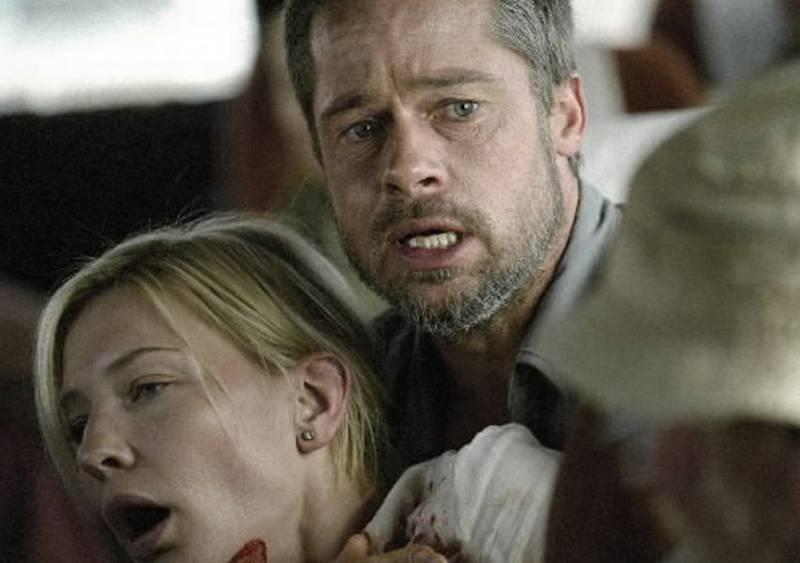
Cate Blanchett and Brad Pitt star in “Babel” as a couple who venture to Morocco, where she’s seriously wounded while travelling on a tourist bus.
"England and America are two countries separated by a common language." — George Bernard Shaw
Even more separated are cultures that do not share languages, values, frames of reference, or physical realities. "Babel" weaves stories from Morocco, America, Mexico and Japan, all connected by the thoughtless act of a child, and demonstrates how each culture works against itself to compound the repercussions. It is the third and most powerful of Alejandro Gonzalez Inarritu 's trilogy of films in which the action is connected or influenced in invisible ways. Sometimes these are called "hyperlink films." After " Amores Perros " (2000) and " 21 Grams " (2003), it shows his mastery of the form, and it surprises us by offering human insight rather than obligatory tragedy.
Without revealing too much, let me chronologically piece together the stories. A Japanese businessman goes on a hunting trip in Morocco, and tips his guide with a rifle. The guide sells the rifle to a friend, who needs it to kill the jackals attacking his sheep. The friend's son shoots toward a tourist bus at a great distance. An American tourist is wounded. The tourist's Mexican nanny, in San Diego, is told to stay with their two children, but doesn't want to miss her son's wedding, and takes the children along with her to Mexico. Police enquiries about the Japanese businessman's rifle lead to consequences for his disturbed daughter.
Yes, but there is so much more to "Babel" than the through-line of the plot. The movie is not, as we might expect, about how each culture wreaks hatred and violence on another, but about how each culture tries to behave well, and is handicapped by misperceptions. "Babel" could have been a routine recital of man's inhumanity to man, but Inarritu, the writer-director, has something deeper and kinder to say: When we are strangers in a strange land, we can bring trouble upon ourselves and our hosts. Before our latest Mars probe blasted off, it was scrubbed to avoid carrying Earth microbes to the other planet. All of the characters in this film are carriers of cultural microbes.
Consider the plight of Yussef (Boubker Ait El Caid), the Moroccan boy. He lives happily with his family, tends sheep, plays with his brother Ahmed. Two alien microbes come into his world: A high-powered rifle, and a tourist bus. Over a great distance, he childishly shoots at one with the other, and seriously wounds Susan ( Cate Blanchett ), an American tourist. Her husband Richard ( Brad Pitt ) demands doctors, ambulances, helicopters, but has to settle for a friendly local man who takes Susan into his home and summons what the village has in the way of medical care.
American authorities immediately brand the shooting as a terrorist act. The Moroccan government refuses to send a helicopter because it insists it harbors no terrorists. This becomes a worldwide news story, told in cable cliches. The other tourists on the bus, led by an outraged Brit, insists on leaving the couple behind, in part because the bus driver insists on saving gas by not turning on the air conditioning — this in a land where the locals have no choice but to live with the heat. As ripples from the original event spread wider, the original reality gets lost.
The American couple lives 45 minutes north of the Mexican border. Susan has arranged for her sister to watch their children while the nanny ( Adriana Barraza ) attends her son's wedding. But the sister cannot come, the nanny cannot find a substitute, and in desperation she gets her nephew ( Gael Garcia Bernal) to drive them all to the wedding. Returning to America, they are properly questioned by U. S. border authorities, but the nephew (who has been drinking, and knows his aunt is an unregistered worker) runs the border, is pursued, and leaves the nanny and children in the desert intending to return. How could the nanny take the children to Mexico? How could she miss her son's wedding? Yes, but how could the nephew leave them in the desert? He drank at the wedding.
Contrary to our expectations, the U.S. border guards are not the villains. Nor, really, is the nanny. Nor did the American couple do anything wrong. Susan was essentially wounded by culture clash. Her husband could not empathize with the nanny's desire to attend her son's wedding because he was too disturbed about his wife ("I'll pay for a bigger wedding," he says.). The nanny thought the children, who she loved, would be safe with her and her family. The nephew should not have been drinking, but it was his cousin's wedding and such things have been known to happen. The border guards were correct in questioning two Mexicans, one inebriated, traveling after midnight with young children not their own.
I could go through each of the stories in this way, showing how carefully Inarritu portrays the motivations of his characters. Richard, the Pitt character, behaves like an ugly American in one sense, and in another like a man terrified of losing his wife. He is insulting, sometimes without realizing it, to his generous hosts. Nor should he assume no one in Morocco speaks English. When Moroccan authorities go looking for the shooter, they behave as we expect, and the sheepherder's family behaves as we would also expect, and children will be children.
In Inarritu's "21 Grams," I thought the interlocking stories spun a little out of his control. Everything finally fit together, in a very good film, but there was sometimes the sense that we were more disoriented than the film really wanted us to be. "Amores Perros," with its three stories, was easy to follow, and now "Babel" finds Inarritu in full command of his technique: The writing and editing moves between the stories with full logical and emotional clarity, and the film builds to a stunning impact because it does not hammer us with heroes and villains but asks us to empathize with all of its characters. They all have their reasons, they all work with only limited information, they all win our sympathy.
There were a few complaints when the film was released that the Japanese plot was hauled into the movie against its will. Not at all. The point of "Babel" is that none need necessarily have met, that the odds against all of these events are high, but that they happened, and there you are. There is even the theme of adolescent sexual insecurity to link Japan with Morocco. And the behavior of police officers in both countries, who are doing their jobs blamelessly, based on the information they have. And with various adults, including the passengers on the bus, there is the reality of men accustomed to having their way, finding themselves in a place where no one knows or cares who they are.
Technically, "Babel" may seem to be an example of the Idiot Plot, in which at many points one word or sentence could clear everything up. But these characters are not idiots, and desperately want to utter that word or sentence, but are prevented because of (a) the language barrier, (b) their cultural assumptions, (c) the inability of others to comprehend what they are actually saying, and (d) how in that case everyone falls into an established script made of prejudice and misunderstanding. Inarritu films more in sorrow than anger, and spares most of his characters tragic retribution because he loves and understands them too much to simply grind them in a plot. This is a film about people who do what we might do — if we were them. We are not, but then it is useful to reflect that they are not us, either.
Inarritu (born 1963) is one of three friends I have taken to calling the New Mexican Cinema, although other names should and will be included. Guillermo Del Toro made "Pan's Labyrinth," and Alfonso Cuaron " Children of Men ," and with "Babel" those three titles are among the adornments of recent cinema. For unknown reasons a country (France, Sweden, Brazil, South Korea, Iran, Germany) will suddenly produce a brilliant generation, and that is happening right now in Mexico. That these Mexicans are also completely at home in English is our gain, but not their loss, because outside the United States most audiences are long accustomed to dubbing, even into their own languages.


Roger Ebert
Roger Ebert was the film critic of the Chicago Sun-Times from 1967 until his death in 2013. In 1975, he won the Pulitzer Prize for distinguished criticism.
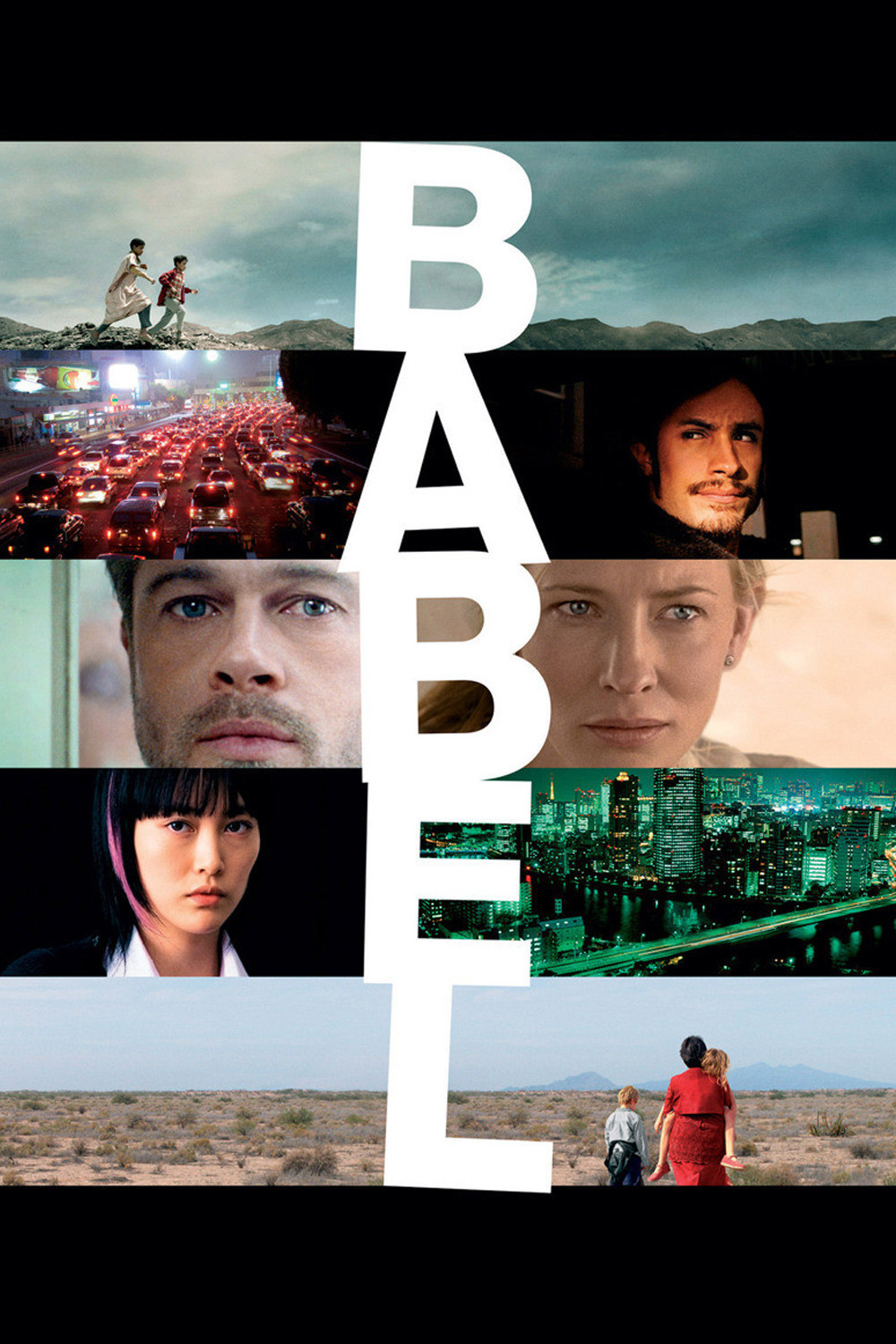
Directed by
- Alejandro Gonzalez Inarritu
Leave a comment
Now playing.

Sweethearts

The Seed of the Sacred Fig

Our Little Secret

Heavier Trip

Nutcrackers

Dear Santa (2024)

The Last Republican
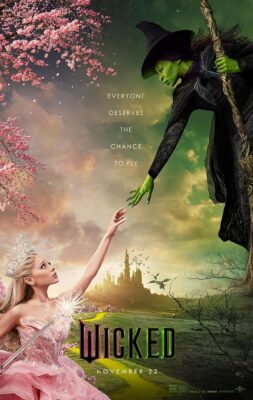
Latest articles
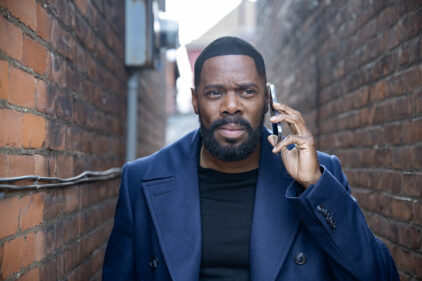
Colman Domingo Propels Phenomenally Entertaining “The Madness”

Criterion Releases Gorgeous Box Set for Their 40th Anniversary

Miyazaki, Howl, and Matters of the Heart
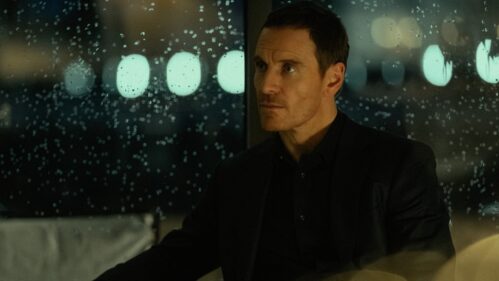
Sharp, Propulsive “The Agency” Should Appeal to Fans of Spy Fiction
The best movie reviews, in your inbox.

The Life and Times of Ben Weinberg
Entrepreneur, ESL Teacher, Traveler, and Writer

‘Babel’ – Film Review and Analysis

There’s a famous story from the Book of Genesis in the Bible that is known as the ‘Tower of Babel.’ It’s a mythic story about how human beings were once speaking the same language around the world and were able to communicate seamlessly enough where they were able to build a magnificent tower to reach the heavens. Humanity is united and in peace with each other given that they share the same language, culture, and geographical location.
After the ‘great flood’ washed away and receded, humanity wanted to build the tower of Babel in order to reach God and the heavens. In the story, God is befuddled by this show of hubris and ego that has united humanity together in building this tower to reach his presence, and decides to make humanity speak different languages, and separates people into different tribes located in different places around the world. The confusion of languages has a major impact on humanity causing a breakdown in communication, and leading to the future certainties of conflict, violence, and overall suffering.
Alejandro Gonzalez Inarritu has created a beautiful film named after this allegorical Biblical event titled, Babel (2006), which was released over a decade ago, and was a winner of Best Original Score at the Oscars as well as six other Academy Award nominations. The film was released to critical acclaim and has garnered a lot of recognition for its’ themes of globalization, cultural and language miscommunication, and the powerlessness of people to control critical events that happen in their lives.
‘Babel’ features an ensemble cast of actors from around the world, which include Brad Pitt, Cate Blanchett, Gael Garcia Bernal, Koji Yashuko, and Adriana Barraza. ‘Babel’ is an intriguing film in that the characters and situations in the film take place in three different parts of the world but are interrelated with each other. The sequences of events that occur are out of order but are shown to connect with each other as the film goes on. As for the countries where the film is set, they include Morocco, Japan, Mexico, and the United States. A lot of credit must be given to Mr. Inarritu for weaving these three storylines together without making it too hard to follow or too farcical to be believed. The aspects that make this film unique are the interweaving storylines, the excellent acting, and the themes and questions that ‘Babel’ poses to its’ audience.
The stories that make up ‘Babel’ show how unrelated and seemingly random events at the time can end up turning people’s lives upside down. The overall plot of ‘Babel’ starts out with a Japanese businessman giving a rifle to his hunting companion / tour guide in Morocco as an innocuous gift. This event seems harmless as a moment between two men of different countries and cultures sharing a gift but which causes different events of the movie to unfold over three different continents.
The hunting rifle that makes its’ way to Morocco, is eventually sold by Hassan Ibrahim, who receives the rifle from his old Japanese hunting partner and the rifle ends up in the hands of a goat-herder named Abdullah. Perhaps not using the best judgment as a grandfather should but not seeing a problem with it, Abdullah gives over the hunting rifle to his two sons, Yussef and Ahmed, who want to use it to ward off jackals from killing the goats in their flock.
The boys who are only teenagers and are not skilled with weapons end up practicing the range of the rifle and end up practicing the firing of the rifle on rocks, a moving car, and then the bus. The two boys do not really know the danger that they’re playing with and they don’t know who is on the bus they’re firing the rifle at. The Western tourists who are travelling through Morocco are also unaware as to what is about to happen and are trying to enjoy their trip to a foreign country. Susan, played by Cate Blanchett, is an American woman sleeping on that bus filled with Western tourists and is trying to get some rest when she is shot in the neck accidentally by one of the Moroccan boys with the hunting rifle.
Her husband, Richard, played by Brad Pitt, is caught unaware of what happens to his wife, Susan, but quickly catches up to the reality that his wife is severely wounded in a foreign country where he doesn’t speak the language, and he doesn’t have control of the situation. After losing their third child recently to the SIDS disease, Richard and Susan’s marriage is on the rocks and they took the trip to Morocco to get the spark back in their love life. In some scenes of the film, they seem angry, confused, and emotionally distraught after the tragic death of their infant child.
While Richard and Susan are on vacation in Morocco as a means to save their marriage, their two children are in the care of their long-term nanny who is originally from Mexico. Amelia (played by Adriana Barraza) is put into a difficult situation after Susan’s injured state becomes known. She is an undocumented person working in the United States illegally but she has been a nanny and housekeeper for Richard and Susan for many years. She treats their children like her own son and daughter after being a personal caretaker for them. It is made clear to the audience that Adriana has been in the U.S. for over a decade and a half and she has close ties to the American family.
During the film, Adriana is put into a very difficult situation, as she has to go back to Mexico for her son’s wedding but is unable to leave Richard and Susan’s children by themselves at the house in California. Because Richard can’t leave Susan’s bedside, they are delayed in their arrival back to San Diego. Against Richard’s wishes, Adriana decides to take their children with her to Mexico for the evening to enjoy the wedding of her son. Everything is fine for Adriana and the children at the wedding until her nephew, Santiago, decides to drink heavily during the celebration. He is shown to be intoxicated before driving on the way back to U.S.-Mexico border with Adriana and the children causing a number of unfortunate events that upends the lives of all those who are involved in his serious mistake.
The last part of the storyline takes place in Japan and focuses mainly on a teenage girl named Chieko Wataya (played by Rinko Kikuchi). Chieko is deaf and is unable to hear the outside world. On top of that, her mother recently committed suicide, which Chieko became the first witness to leaving her traumatized and inconsolable. She struggles in her attempts to relate to people anymore and is frustrated with boys her age. It is implied that her father and Chieko don’t have the best relationship with each other and haven’t discussed the traumatic event of her mother’s suicide.
During this storyline, it becomes clear that Chieko is confused, lonely, and looking to receive love from a father-like figure since her own father has been so absent in her life. Without spoiling the ending of this storyline, it is also revealed that Chieko’s father is the one to originally give the hunting rifle to the Moroccan man, Hassan Ibrahim, who he met on his trip there. The police eventually question Chieko’s father about why he sold his rifle to Hassan, and how Susan’s wounded state has become a major political point of contention between the U.S. and Moroccan governments.
Overall, Alejandro Gonzalez Inarritu does an excellent job of bringing these four storylines over three continents to life, and is able to tie them together seamlessly. ‘Babel’ is a story of human beings living their lives in their own ways within their own cultures but who get caught up in external events beyond their control. Inarritu is able to capture how interconnected our world is today in the early stages of the 21 st century whether we would like to be aware of it or not. Seemingly unrelated events to each other are able to cause powerful effects that can change people’s lives when they least expect them.
A Japanese man goes on a hunting trip in Morocco, enjoys his Moroccan hunter’s company, and gives him a gift. That Moroccan man sells the rifle to a local goat-herder who lets his two sons practice with the weapon, and they fire the gun consecutively without knowing the damage it can do. The boys, not trying to do harm intentionally, end up shooting accurately at a bus that happens to be filled with Western tourists. An American woman who is catching some sleep catches a stray bullet and starts to bleed to death. She has to seek help from the local Moroccans in the village, and her wounded status causes a political feud between the U.S. – Moroccan governments over whether or not the act was ‘terrorism.’
While she’s recovering from her wounds, her housekeeper half a world away takes her children to Mexico to see her son get married at a wedding. Her nephew uses poor judgment on the drive back to the U.S. from Mexico and makes a fateful decision that changes Adriana and the children’s lives. ‘Babel’ was one of the first movies of the 21 st century to really capture the phenomenon of globalization, and how actions that happen half a world away can affect other people’s lives directly. In this movie, we see how people try to do their best as people do, and often times don’t mean to do harm to others intentionally.
Sometimes, people can get caught up in making decisions that they think are good at the time but end up having the opposite effect. ‘Babel’ is not a simple black and white film with truly good or truly evil people. This is a film that understands that there are various shades of grey to life, and that it is difficult to control everything that happens to us and the people in our lives.
Overall, ‘Babel’ is an emotionally charged film that reminds us how people, things, and events can be misinterpreted. When you as an individual come from different cultural and language backgrounds, there are things that are likely to be lost in translation with another person of a different background. Unfortunately, miscommunication is apart of life, and problems are going to occur when people are unable to understand and connect with each other even if they do speak the same language with each other.
As the Biblical story goes, humanity ended up being divided by different languages after trying to be unified in their desire to build up a singular tower to the heavens. We are said to have been punished for our hubris and ego, which caused us to be separated from each other as we were spread out intentionally across the globe.
The audience is left to wonder at the end of ‘Babel’ if there is a truly happy or sad ending to take note of. The plain truth of the ending to me is that ‘Babel’ purposely shows all the elements of the human experience from Chieko’s joy at going to a rave party with her friends to Adriana’s pure despair at losing Richard and Susan’s children in the Mexican desert.
‘Babel’ shows us that life has its’ inevitable ups and downs, and that we can only control so much about our own lives, and many things are often out of our control yet still happen to affect us deeply regardless. Still, this brilliant film captures the resilience of its’ characters who try to make amends for their mistakes, and want to become better as they figure out the complexities and difficulties that make up life. I highly recommend ‘Babel’ to others and hope that it will get the recognition it deserves for years to come.
Discover more from The Life and Times of Ben Weinberg
Subscribe to get the latest posts sent to your email.
Type your email…
Share this:
Author: Ben W.
Hello, I am an Entrepreneur in Online Education focusing on English as a Second Language Studies. I offer online courses and eBooks on English grammar, Business English, and English writing. I also recently released my first personal development guide. You can find all of these offerings below and please sign-up for updates to come! Thanks. View all posts by Ben W.

One thought on “‘Babel’ – Film Review and Analysis”
You have written a nice review of the movie. However, you took the credit of Guillermo Arriaga, the screenwriter that came up with the story. Inarritu did a great job in directing the movie, but credit should be given to Guillermo Arriaga, who also wrote Amores Perros and 21 Grams, movies also directed by Inarritu.
Leave a comment Cancel reply
This site uses Akismet to reduce spam. Learn how your comment data is processed .
Subscribe now to keep reading and get access to the full archive.
Continue reading
- Share full article
Advertisement
Supported by
Movie Review | 'Babel'
Emotion Needs No Translation
By A.O. Scott
- Oct. 27, 2006
The biblical story of Babel takes up a handful of verses in the 11th chapter of Genesis, and it illustrates, among other things, the terrible consequences of unchecked ambition. As punishment for trying to build a tower that would reach the heavens, the human race was scattered over the face of the earth in a state of confusion — divided, dislocated and unable to communicate. More or less as we find ourselves today.
To make sense of this condition requires an ambition nearly as great as the one that got those ancient architects into trouble in the first place. Any discussion of “Babel,” therefore — whether grounded in skepticism or lost in admiration — has to begin by acknowledging just how much the film, the third collaboration between the director Alejandro González Iñárritu and the screenwriter Guillermo Arriaga, sets out to do.
It tells four distinct stories, disclosing bit by bit the chronology and causality that link them and making much of the linguistic, cultural and geographical distances among the characters. The movie travels — often by means of jarringly abrupt cuts and shifts of tone — from the barren mountains of Morocco, where the dominant sound is howling wind, to fluorescent Tokyo, where the natural world has been almost entirely supplanted by a technological environment, to the anxious border between the United States and Mexico. Each place has its own aural and visual palette. The languages used by the astonishingly diverse cast include Spanish, Berber, Japanese, sign language and English. The misunderstandings multiply accordingly, though they tend to be most acute between husbands and wives or parents and children, rather than between strangers.
Surely, something must hold this world — or, at any rate, this film’s vision of the world — together. Whether anything does is the question most likely to fuel the cafe-table arguments “Babel” will surely provoke. The individual scenes are sometimes so powerful, and put together with such care and conviction, that you might leave the theater feeling dazed, even traumatized. “Babel” is certainly an experience. But is it a meaningful experience? That the film possesses unusual aesthetic force strikes me as undeniable, but its power does not seem to be tethered to any coherent idea or narrative logic. You can feel it without ever quite believing it.
But let’s give feeling its due. The sheer reckless ardor of Mr. González Iñárritu’s filmmaking — the voracious close-ups, the sweeping landscape shots, the swiveling, hurtling camera movements — suggests a virtually limitless confidence in the power of the medium to make connections out of apparent discontinuities. His faith in cinema as a universal language could hardly be more evident.
Some of the pieces of “Babel” are attached to one another by the banal lingua franca of television images, as events in North Africa, for instance, make the evening news in Tokyo. But Mr. González Iñárritu’s own visual grammar tries to go deeper, to suggest a common idiom of emotion present in certain immediately recognizable gestures and expressions. We may not be able to read minds or decipher words, he suggests, but we can surely decode faces, especially when we see them at close range and in distress. Loss, fear, pain, anguish — none of these emotions, it seems, are likely to be lost in translation.
It gives nothing away to note that every story in “Babel” ends in tears. The raw, naturalistic intimacy of Rodrigo Prieto’s cinematography disguises some flagrant melodrama, as does the dedication of the actors, some of whom have never appeared on film before.
The most glamorous cast members are Brad Pitt and Cate Blanchett, who play an American couple on a desultory vacation in Morocco, trying to repair the damage done to their marriage by the death of their infant son. Their movie-star charisma is turned down to a low, flickering flame, and the easy sense of entitlement they sometimes betray belongs naturally to their characters, Susan and Richard, who nonetheless receive a brutal reminder that even the privileged are vulnerable to accident.
Susan — the kind of tourist who worries that the local ice cubes carry disease — is badly wounded when a bullet is fired through a bus window, hitting her in the neck. The bullet comes from a gun belonging to Abdullah (Mustapha Rachidi), a goatherd, and used by his two sons, Ahmed (Said Tarchani) and Yussef (Boubker Ait El Caid), to keep jackals away from the herd.
The gunmen and their victim are never in the frame together, and the consequences of the incident unfold in parallel crises. Susan and Richard wind up in a small town, waiting for an ambulance, facing the panic and impatience of their fellow holiday makers and relying on the kindness of strangers. Abdullah and his sons and neighbors, for their part, must deal with the harsh attentions of the Moroccan police, who are trying to defuse what threatens to become an international incident.
Meanwhile — or, rather, a short time later, since the overlapping and sequential chapters of the movie are presented as if they were happening simultaneously — Richard and Susan’s surviving children (Elle Fanning and Nathan Gamble) travel to Mexico with the family’s housekeeper, Amelia (Adriana Barraza), whose son is getting married near Tijuana. They are accompanied by Amelia’s roughneck nephew Santiago (Gael García Bernal, who clearly relishes playing the heavy for once).
And in Tokyo, a deaf teenage girl named Chieko (Rinko Kikuchi) spins through the emotional upheavals of adolescence, which are intensified both by her disability — or, more precisely, the obtuse way other people respond to it — and by the aftershocks of her mother’s death.
Chieko’s brazen attempts to solicit attention result, again and again, in humiliation, and Ms. Kikuchi’s performance is an unnerving blend of sexual provocation, timidity and sheer rage. Of all the characters in “Babel,” she seems most surprising and least tethered to cultural stereotype (in spite of the short-skirted schoolgirl uniform she wears). And her story, unfolding without evident connection to the other three, does not seem quite as bound by the fatalism that is Mr. Arriaga’s hallmark — as well as his limitation — as a storyteller.
The splintered, jigsaw-puzzle structure of “Babel” will be familiar to viewers who have seen “Amores Perros” or “21 Grams,” the other two features Mr. Arriaga and Mr. González Iñárritu have made together. Indeed, this movie belongs to an increasingly common, as yet unnamed genre — “Crash” is perhaps the most prominent recent example — in which drama is created by the juxtaposition of distinct stories, rather than by the progress of a single narrative arc.
Perhaps the most common feature of movies of this kind is that they are more interested in fate than in psychology. The people in “Babel” behave irrationally — if often quite predictably — but any control they appear to have over their own lives is illusory. They suffer unequally and unfairly, paying disproportionately for their own mistakes and for the whims of chance and the laws of global capitalism.
In “Babel” there seems to be an active, palpable tension between the schematism of Mr. Arriaga’s scenario and the sensuality of Mr. González Iñárritu’s filmmaking. Some of the most exciting and powerful sequences — a Tokyo nightclub rave, the wedding of Amelia’s son — push beyond the constraints of the narrative and defy, at least for a time, the grim inevitability that hovers over the film.
The sheer sensory exuberance of the film at once subverts the fatalism of its story and lends it whatever credibility it has. On paper, very little of it makes sense, but what is on screen has an almost physical impact. In the end “Babel,” like that tower in the book of Genesis, is a grand wreck, an incomplete monument to its own limitless ambition. But it is there , on the landscape, a startling and imposing reality. It’s a folly, and also, perversely, a wonder.
“Babel” is rated R (Under 17 requires accompanying parent or adult guardian). It has strong language, nudity and intense violence.
Opens today in New York.
Directed by Alejandro González Iñárritu; written (in English, Spanish, Japanese, Berber, Arabic and sign language, with English subtitles) by Guillermo Arriaga, based on an idea by Mr. González Iñárritu and Mr. Arriaga; director of photography, Rodrigo Prieto; edited by Stephen Mirrione and Douglas Crise; music by Gustavo Santaolalla; production designer, Brigitte Broch; produced by Mr. González Iñárritu, Jon Kilik and Steve Golin; released by Paramount Vantage. Running time: 143 minutes.
WITH: Brad Pitt (Richard), Cate Blanchett (Susan), Gael García Bernal (Santiago), Koji Yakusho (Yasujiro), Adriana Barraza (Amelia), Rinko Kikuchi (Chieko), Said Tarchani (Ahmed), Boubker Ait El Caid (Yussef), Mustapha Rachidi (Abdullah), Elle Fanning (Debbie), Nathan Gamble (Mike) and Mohamed Akhzam (Anwar).
- Cast & crew
- User reviews

Tragedy strikes a married couple on vacation in the Moroccan desert, which jump starts an interlocking story involving four different families. Tragedy strikes a married couple on vacation in the Moroccan desert, which jump starts an interlocking story involving four different families. Tragedy strikes a married couple on vacation in the Moroccan desert, which jump starts an interlocking story involving four different families.
- Alejandro G. Iñárritu
- Guillermo Arriaga
- Cate Blanchett
- Gael García Bernal
- 1K User reviews
- 267 Critic reviews
- 69 Metascore
- 45 wins & 137 nominations total

Top cast 99+

- All cast & crew
- Production, box office & more at IMDbPro
More like this

Did you know
- Trivia The scene where Chieko ( Rinko Kikuchi ) and her father are in the car together was shot without filming permission from the city due to slow Japanese bureaucratic procedures. The crew created "man-made" busy traffic, and began shooting the scene. Later the police started chasing them while still shooting the scene.
- Goofs After the wedding, Amelia, her nephew and the Jones children use the Tecate border crossing to reenter the USA. After fleeing, we are shown a sandy, wide desert where they wander. Actually, the Tecate border crossing is in the mountains, there is no such desert within a reasonable distance on the USA side. What is shown looks like an Arizona border crossing.
Mike Jones : My mom said Mexico is dangerous.
Santiago : [in Spanish] Yes, it's full of Mexicans.
- Connections Featured in Siskel & Ebert: The Prestige/Flicka/Marie Antoinette/Flags of Our Fathers/A Guide to Recognizing Your Saints (2006)
- Soundtracks Para Que Regreses El Chapo Gabriel Ramirez Maximo Aguirre Music Publishing, Inc. D Disa Latin Music, S. de R.L. de C.V
User reviews 1K
A bit of teaching, a lot of preaching, oodles of talent.
- Mar 1, 2007
- How long is Babel? Powered by Alexa
- What did Chieko write to the Detective?
- What does the title mean?
- How much English is spoken?
- November 10, 2006 (United States)
- United States
- Vidio (Indonesia)
- West Video (Russia)
- Berber languages
- Japanese Sign Language
- Ouarzazate, Morocco
- Paramount Pictures
- Paramount Vantage
- Anonymous Content
- See more company credits at IMDbPro
- $25,000,000 (estimated)
- $34,302,837
- Oct 29, 2006
- $135,330,835
- Runtime 2 hours 23 minutes
- Dolby Digital
Related news
Contribute to this page.

- See more gaps
- Learn more about contributing
More to explore
Recently viewed.
Babel Review
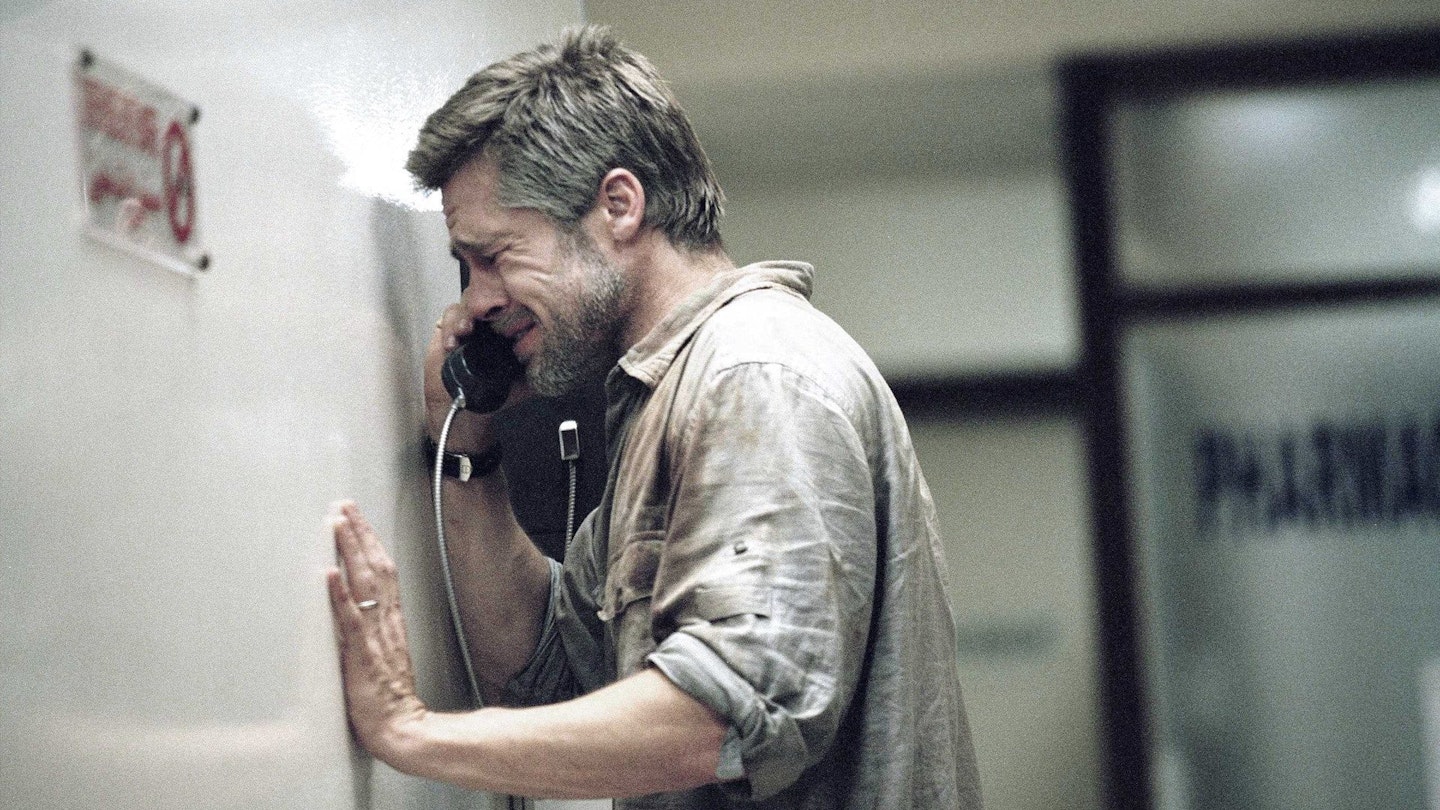
19 Jan 2007
143 minutes
Falling into the Interlocking Stories Used To Make A Big Point About The Human Condition subgenre (see also Grand Canyon, Crash), Alejandro González Iñárritu’s riveting closure to the trilogy he started with Amores Perros and 21 Grams boasts a bigger dramatic, thematic and cinematic appetite than most directors muster in an entire career. Babel takes the multiple-stories-over-shifting-time-frames gambit of its predecessors but plays it over the whole globe, as a single act of kindness reverberates with shattering consequences around Morocco, the US, Mexico and Japan (happily, the ripples never reach Lyme Regis). The result is terrific cinema, built on across-the-board great performances, searing imagery, heart-stopping moments and surprising flashes of humour, all coalescing into a raw vision of a world in tatters.
Iñárritu and screenwriter Guillermo Arriaga skilfully juggle and juxtapose the intersecting stories, carefully building up dread and emotional tension as you try to figure out how the stories fit together and how they will play out. But what is more astonishing is Babel’s scope. From the opening story, which sees a family of Moroccan goat herders torn apart after buying their first gun, Iñárritu encompasses the Big Themes Of Our Age — globalisation, immigration, terrorism, prejudice, the best way to kill a chicken — but never lets his point-making dwarf his sense of people and place. Like a New Age neo-realist, he has a compassionate eye for human stupidity, never judging his characters as their foibles force the various crises to escalate. If Babel’s central thesis — the things that cause us pain are universal, not unique — is bleak, Iñárritu’s humanism tempers his pessimism.
In what might be a career best, Brad Pitt, borrowing the salt-and-pepper hair/stubble combo that George Clooney uses to denote seriousness, finds new notes of intensity and grief as a tourist holed up in a Moroccan village, struggling to keep it all together as his wife, the victim of a freak accident, fades away. Cate Blanchett, with little else to do but bleed and shiver, still manages to etch out a character of a woman uncomfortable with her lot. It’s to everyone’s credit that the two stars feel an integral part of the ensemble rather than mere stunt casting.
Elsewhere, Iñárritu fave Adriana Barraza radiates maternal warmth and innate decency assaying the au pair caught between her job nannying in San Diego and family obligations in Mexico, making her anguish all the more heartbreaking as she is lead astray by her out-of-control nephew Santiago (Gael García Bernal on fire-cracking form). Yet, the real stand-out here is Rinko Kikuchi, astonishing as Chieko, the Japanese deaf-mute teen trying to cope with the death of her mother, the cruelty of her peers and the hormones racing round her body like the Indy 500. By turns surly, sexually provocative (watch her, out of nowhere, lick her dentist’s face) and distraught, if there’s any justice in the world — and Babel persuasively argues that there isn’t — she would be a lock for a Best Supporting gong.
Working in cahoots with Brokeback lenser Rodrigo Prieto, Iñárritu beautifully evinces the sense of dusty village life, a Mexican wedding teeming with joy and warmth, and Tokyo’s pulsing teenage subculture — in a bravura moment following Chieko on a night out clubbing, the soundtrack cuts from the pounding sounds of Michael Jackson’s Don’t Stop ’Til You Get Enough to absolute silence, perfectly conveying Chieko’s sense of dislocation, both sensory and emotional. Iñárritu is also a terrific director of children, guiding four naturalistic child performances — two Moroccan, two American — without a hint of cuteness.
Some may find the collage of coincidental dramas overwrought, but Iñárritu doesn’t deliver any pat answers. As much as it presents an eloquent argument for global understanding, there are no ‘We Are The World, We Are The Children’ platitudes offered up. Instead, Iñárritu lets the cultures collide and the different tongues babble, but offers no way through the mire, just a sensible awareness of the despair created by differences. A final moment of one hand squeezing another is touching, but does little to dilute the portrait of a world soaked in sadness.
Related Articles
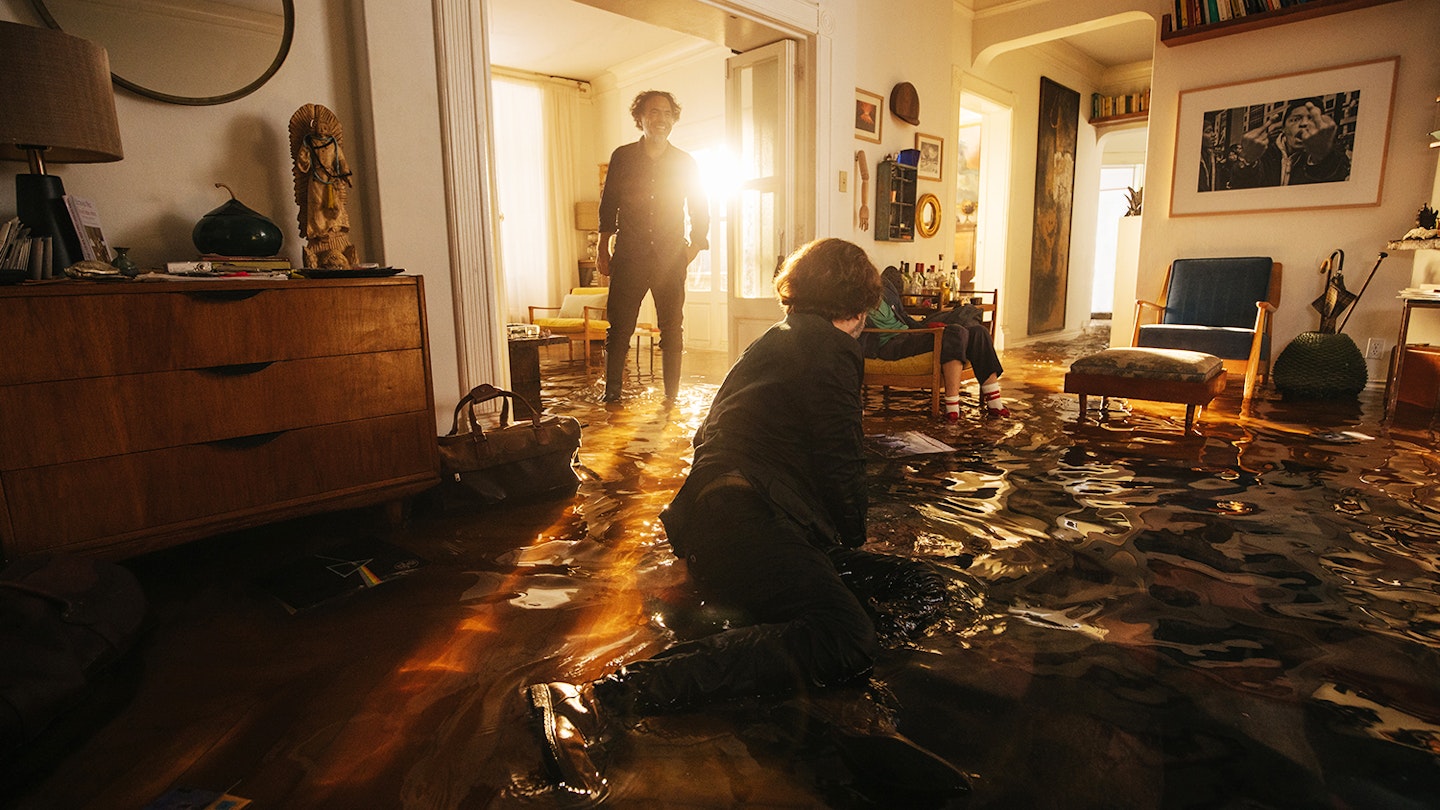
Movies | 28 04 2022

Movies | 31 07 2014

Movies | 16 03 2007

Movies | 23 01 2007

Movies | 16 01 2007

Movies | 10 01 2007

Movies | 14 12 2006

Movies | 03 11 2006
We sent an email to [email protected]
Didn't you get the email?
By joining, you agree to the Terms and Policies and Privacy Policy and to receive email from the Fandango Media Brands .
User 8 or more characters with a number and a lowercase letter. No spaces.
username@email
By continuing, you agree to the Privacy Policy and the Terms and Policies , and to receive email from the Fandango Media Brands .
Log in or sign up for Rotten Tomatoes
Trouble logging in?
By creating an account, you agree to the Privacy Policy and the Terms and Policies , and to receive email from Rotten Tomatoes and to receive email from the Fandango Media Brands .
By creating an account, you agree to the Privacy Policy and the Terms and Policies , and to receive email from Rotten Tomatoes.
Email not verified
Let's keep in touch.

Sign up for the Rotten Tomatoes newsletter to get weekly updates on:
- Upcoming Movies and TV shows
- Rotten Tomatoes Podcast
- Media News + More
By clicking "Sign Me Up," you are agreeing to receive occasional emails and communications from Fandango Media (Fandango, Vudu, and Rotten Tomatoes) and consenting to Fandango's Privacy Policy and Terms and Policies . Please allow 10 business days for your account to reflect your preferences.
OK, got it!
- About Rotten Tomatoes®
- Login/signup
Movies in theaters
- Opening This Week
- Top Box Office
- Coming Soon to Theaters
- Certified Fresh Movies
Movies at Home
- Fandango at Home
- Prime Video
- Most Popular Streaming Movies
- What to Watch New
Certified fresh picks
- 90% Wicked Link to Wicked
- 77% Queer Link to Queer
- 94% The Seed of the Sacred Fig Link to The Seed of the Sacred Fig
New TV Tonight
- 100% Get Millie Black: Season 1
- 40% The Agency: Season 1
- 56% The Madness: Season 1
- -- Family Guy: Season 22.2
- -- The Later Daters: Season 1
- -- Tsunami: Race Against Time: Season 1
- -- Chef's Table: Season 7
- -- It's in the Game: Madden NFL: Season 1
- -- Is It Cake? Holiday: Season 4
- -- Second Chance Stage: Season 1
Most Popular TV on RT
- 97% A Man on the Inside: Season 1
- 100% Arcane: League of Legends: Season 2
- 68% Dune: Prophecy: Season 1
- 95% The Penguin: Season 1
- 93% Say Nothing: Season 1
- 85% The Day of the Jackal: Season 1
- 100% From: Season 3
- 96% Silo: Season 2
- 76% Landman: Season 1
- 77% Cross: Season 1
- Best TV Shows
- Most Popular TV
Certified fresh pick
- 97% A Man on the Inside: Season 1 Link to A Man on the Inside: Season 1
- All-Time Lists
- Binge Guide
- Comics on TV
- Five Favorite Films
- Video Interviews
- Weekend Box Office
- Weekly Ketchup
- What to Watch
Best New Christmas Movies of 2024
61 Best Thanksgiving Movies: Your Holiday Movie Feast
What to Watch: In Theaters and On Streaming.
Awards Tour
The Most Anticipated Movies of 2025
Movie Re-Release Calendar 2024 & 2025: Your Guide to Movies Back In Theaters
- Trending on RT
- Thanksgiving Movies
- Re-Release Calendar
- Food Movies
- Renewed and Cancelled TV
Babel Reviews

Babel is Crash with delusions of global grandeur; a film that masquerades as a sweeping, humanistic epic, but is instead an ultimately hammy, superficial and miserablist game of connect-the-dots.
Full Review | Nov 14, 2023
Blanchett and Pitt are playing a version of the "ugly Americans abroad" trope. The film does not shy away from presenting them as entitled despite the circumstances that they are in.
Full Review | Original Score: B | Mar 4, 2022
Unlike Crash, where the characters felt like cartoons and stereotypes, these characters are fleshed out and real, and the performances are first-rate, with a performance from Brad Pitt that is his most mature work.
Full Review | Jul 11, 2021
I have to wonder if Iñárritu knows how to find any meaning in the endless barrage of misery that spills out of him without tricking it out in some sort of multi-cultural pluralistic hodgepodge of time-looping bull
Full Review | Jul 2, 2021
A look at the interconnectedness between human beings internationally. How our actions and decisions can affect/impact people around us and even in other countries.
Full Review | Original Score: 4/5 | May 22, 2021
The acting is exceptional, allowing the loosely connected storylines to garner greater gravity.
Full Review | Original Score: 6/10 | Mar 24, 2021
See Babel while it still illuminates a big screen, for all the clues it contains about our times, as we babble more and more about less and less.
Full Review | May 19, 2020
[Iñarritu] has captured humanity in all of its flawed glory - fallen yet beautiful, tragic yet hopeful - all crying out to be heard.
Full Review | Original Score: 4/4 | Jun 6, 2019
There are moments when a lot is left unsaid. There's a remarkable stillness and delicacy as the music and images interplay and do all the talking.
Full Review | Original Score: 3/4 | Jan 23, 2019
An irredeemably overdetermined, far-fetched and transparently schematic piece.
Full Review | Original Score: 2/5 | Dec 2, 2018
On a practical level it's hard not to see that nearly every calamity in Babel could have been avoided had the characters exercised better judgment
Full Review | Oct 16, 2018
Full Review | Original Score: 8/10 | Feb 9, 2011
The gimmick-machinery whirrs, but the human beings in it can't breath
Full Review | Aug 28, 2009
An ensemble cast, low-key drama, and tolerable political commentary make "Babel" a gripping success.
Full Review | Apr 29, 2009
Full Review | Original Score: 4/5 | Nov 20, 2008
Full Review | Original Score: 2/5 | Aug 7, 2008
Babel...belongs to an unfortunately proliferating genre that might be called the higher kitsch.
Full Review | Jun 1, 2008
...language acts more as a means to distance and isolate us than aid in our understanding of one another.
Full Review | Original Score: 7/10 | Feb 28, 2008
A lumbering, stitched-together mess.
Full Review | Original Score: C- | Jul 23, 2007
Babel directed by Alejandro Gonzalez Inarritu is one of the most compelling films to date.
Full Review | Original Score: A | Jul 22, 2007
- Trending on RT
TORONTO: In "Babel," The World Is Flat And Pain Is Universal
" Babel " is a work of remarkable craft, a masterpiece of sensorial and emotional intensity. The film, which screened at the Toronto International Film Festival , is a bleak, disquieting film for our troubled times, and a palpable sense of tension permeates throughout.
Director Alejandro González Inarritu is at the height of his powers here; in presenting multiple plotlines set around the globe, he never shortchanges the drama of any individual sequence, nor is there any confusion about where we are at a given point. And while " Babel " puts the audience through the wringer, the end result is strangely hopeful and comforting; it’s a movie about the interconnectedness of humanity, in which people struggle mightily to find a way out of emotional and cultural seclusion.
Richard ( Brad Pitt ) and Susan ( Cate Blanchette ) are a married couple touring Morocco by bus, when tragedy strikes, courtesy of a silly dare by two children firing rifles in the desert. Susan is mortally wounded, so Richard calls the couple’s nanny Amelia ( Adriana Barraza ) and tells her to continue taking care of their children for a few more days. But it’s the day of her son’s wedding, so she brings the children with her and her decent but unruly nephew ( Gael Garcia Bernal ) across the boarder into Mexico. Meanwhile in Japan, Chieko, a deaf teenager ( Rinko Kikuchi ) is bursting at the seams with teen angst as she tries to connect with her peers; she also warms to a police officer who’s looking for information about a gun her father once owned.
It feels wrong to say much more, since each of these scenarios builds to moments of incredible anxiety. There’s an organic feel to the way the three stories are linked; the events don’t feel contrived to fit an overarching message. This is sort of a "The World Is Flat" of the soul. The performances are uniformly excellent; Pitt, Blanchette and Bernal may be the biggest names here, but the international cast (especially Kikuchi), which includes many non-professionals, is more than up to the task.
There’s a passage in the middle of the film that’s as virtuoso as anything you’re likely to see all year. Chieko enters a pulsing dance club with some friends and a couple of guys they met earlier in the day. As Earth Wind and Fire’s "September" plays on the soundtrack, we get both the scene surrounding Chieko and her perspective. The combination of the flickering strobe light, the flurry of bodies in motion, and the intermittent blast of the music mixed with silence create a hypnotic sequence of disquieting power. It’s the greatest sequence in a film filled with remarkable moments, and it typifies the cinematic daring that makes Inarritu’s film such a joy to behold.
" Babel " currently stands at 100 percent on the Tomatmeter. The critics say it’s a remarkably ambitious and compassionate film featuring strong performances.
Related News
8 Must-Watch Films at the Venice International Film Festival
Golden Globes Best Picture Winners by Tomatometer
Oscar Winners 2023: Full List of the 95th Academy Awards Winners
Best New Christmas Movies of 2024
61 Best Thanksgiving Movies: Your Holiday Movie Feast
47 Christmas Horror Movies Ranked by Tomatometer
Movie & TV News
Featured on rt.
November 27, 2024
100 Best Christmas Movies of All Time – Classic Christmas Films
50 Best New Animated Movies
All 73 Disney Animated Movies Ranked
Top Headlines
- Best New Christmas Movies of 2024 –
- 61 Best Thanksgiving Movies: Your Holiday Movie Feast –
- 47 Christmas Horror Movies Ranked by Tomatometer –
- 100 Best Christmas Movies of All Time – Classic Christmas Films –
- 50 Best New Animated Movies –
- All 73 Disney Animated Movies Ranked –

IMAGES
VIDEO
COMMENTS
There were a few complaints when the film was released that the Japanese plot was hauled into the movie against its will. Not at all. The point of "Babel" is that none need necessarily have met, that the odds against all of these events are high, but that they happened, and there you are.
Rated: 2/6 Feb 3, 2007 Full Review Josh Slater-Williams Vague Visages Babel is Crash with delusions of global grandeur; a film that masquerades as a sweeping, humanistic epic, but is instead an ...
'Babel' features an ensemble cast of actors from around the world, which include Brad Pitt, Cate Blanchett, Gael Garcia Bernal, Koji Yashuko, and Adriana Barraza. 'Babel' is an intriguing film in that the characters and situations in the film take place in three different parts of the world but are interrelated with each other.
The biblical story of Babel takes up a handful of verses in the 11th chapter of Genesis, and it illustrates, among other things, the terrible consequences of unchecked ambition.
Babel is a very heavy movie, 4 story connected to one another in some way, with all 4 of them fills with a very intense, intriguing, personal, and depressing story, it's superbly perform by all the cast, a very engaging film for near two in a half hours runtime, all the way through, Babel is a hell of a journey, hell of a story, hell of a performances, and hell of a movie, Babel is incredible.
Babel is a 2006 psychological drama film directed by Alejandro González Iñárritu and written by Guillermo Arriaga. [5] The multi-narrative drama features an ensemble cast and portrays interwoven stories taking place in Morocco, Japan, Mexico, and the United States. An international co-production among companies based in the United States, Mexico and France, the film completes Arriaga and ...
Babel: Directed by Alejandro G. Iñárritu. With Brad Pitt, Cate Blanchett, Mohamed Akhzam, Peter Wight. Tragedy strikes a married couple on vacation in the Moroccan desert, which jump starts an interlocking story involving four different families.
Babel takes the multiple-stories-over-shifting-time-frames gambit of its predecessors but plays it over the whole globe, as a single act of kindness reverberates with shattering consequences ...
Babel is Crash with delusions of global grandeur; a film that masquerades as a sweeping, humanistic epic, but is instead an ultimately hammy, superficial and miserablist game of connect-the-dots ...
"Babel" is a work of remarkable craft, a masterpiece of sensorial and emotional intensity. The film, which screened at the Toronto International Film Festival, is a bleak, disquieting film for our troubled times, and a palpable sense of tension permeates throughout.. Director Alejandro González Inarritu is at the height of his powers here; in presenting multiple plotlines set around the globe ...